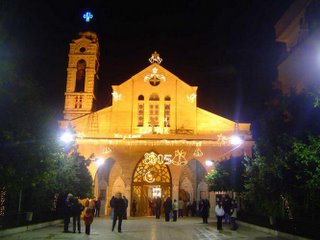Syrian Vice-President accuses Bashar
Former Syrian Vice-President Abdul Halim Khaddam - who resigned in June - has accused Bashar of threatening Rafiq Al-Hariri.
In an astonishing statement, he says: "Assad told me he had delivered some very, very harsh words to Hariri... something like 'I will crush anyone who tries to disobey us'." It supports claims made by UN Investigator Detlev Mehlis. Khaddam was a close personal friend of Rafiq Al-Hariri, and the only member of the Syrian government to attend his funeral.
Khaddam was a close personal friend of Rafiq Al-Hariri, and the only member of the Syrian government to attend his funeral.
He also said that the Syrian security services could not have killed Hariri without the personal knowledge of Bashar.
WHY NOW?
Khaddam is now living in Paris, and it's thought today's statement is an attempt to position himself as a replacement for Bashar.
Or it could be an attempt to extricate himself from being implicated in the killing: Khaddam was the Syrian government member in charge of Lebanon at the time of Hariri's death.
OLD GUARD
Khaddam - a stalwart of the old guard - was removed by Bashar in June in an attempt to bring reformists into government and replace old faces from Hafez's dirty era. But Khaddam didn't support the changes, and his removal: he said he is "convinced that the process of development and reforms, be they political, economic or administrative, will not succeed".
He said today he was cutting links with 'authoritarian' Bashar.
For the first time, there is a viable alternative to Bashar. Khaddam: Hafez-lite.



